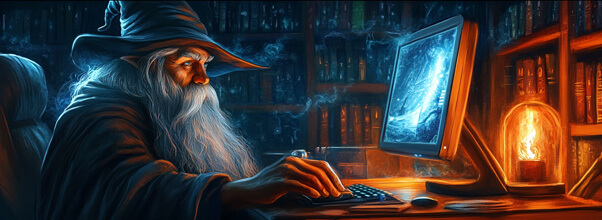Game development has devolved into a brutal zero-sum battle for the only resource that truly matters: time. Forget the astronomical revenue figures paraded around by industry execs as if they were trophies of innovation. The cold hard truth? That wealth is siphoned off by a microscopic elite, while the rest of the industry scrambles for scraps like peasants at a feast they weren’t invited to.
Take a look at 2024. Steam alone vomited forth a staggering 19,000 games into the marketplace — a deluge of content so overwhelming it would drown even the most stalwart gamer. Yet, despite this tidal wave, the names on everyone’s lips remain the same: Black Myth: Wukong, Palworld, Helldivers 2, Elden Ring, etc. The usual suspects, crowning the charts and guzzling the lion’s share of revenue, leaving the rest to fight over the crumbs. The story reads like a grim rerun of Hollywood’s obsession with tentpole blockbusters, where the middle and lower tiers of the market have been systematically gutted.

The Devaluing of Creativity and Risktaking
But this isn’t just an economic issue; it’s a cultural one. What we’re witnessing is the evisceration of creativity itself. The “long tail” that once promised endless innovation has turned into a graveyard of forgotten titles, buried under the weight of algorithmic apathy and market inertia. It’s no wonder that developers aiming for the middle tier find themselves trapped in a Sisyphean struggle, rolling their boulder up a hill of indifference, only to watch it tumble back down.
The solution, if there’s one to be found, doesn’t lie in doubling down on this corporate monoculture. Chasing the blockbuster dream has turned into an ouroboros of diminishing returns, where bigger budgets breed safer bets, and safer bets suffocate creativity.
Making Niche Games for Specific Communities
For the past 10 years, AAA video game studios have been promoting the mantra that everyone is welcome. They’ve been doing this to expand the demographic to make more money. However the more diverse the audience, the harder it is to tailor video games to appeal directly to them. If you try to appeal to everyone, you end up appealing to no one.
What the industry desperately needs is a revolution of intimacy — a return to the artisanal roots of game creation, where the developer isn’t a faceless cog in a billion-dollar machine but a craftsman with a genuine connection to their audience. The promise of innovation lies not in churning out mass-market products but in rediscovering the joy of creating for specific, impassioned communities.
The era of closed development where projects are shrouded in interminable secrecy is coming to an end. Communication is key. It’s essential development be as transparent as possible so that passionate players can coalesce around the game. Developers also have to change their mindset. They need to see players as stakeholders, partners, and collaborators.
The days of studios trying to make the next World of Warcraft are over. Niche Worlds Cult is one indie studio that is taking this advice to heart. They are working on Monsters & Memories an old-school fantasy MMORPG in hearkens back to venerable titles like EverQuest. Intrepid Studios and Visionary Realms are also producing fantasy worlds that appeal to niche MMORPG audiences.
Conclusion
The future belongs to those who dare to break free from the gravitational pull of the corporate monoliths. Developers who focus on cultivating hyper-targeted experiences, and building vibrant communities around niche interests, will find themselves not just surviving but thriving. This is more than a business strategy; it’s an act of rebellion against a system that has stifled individuality and hollowed out the market’s soul. In this new paradigm, creativity and connection trump spreadsheets and shareholder appeasement.
The question is whether the industry is ready to embrace this change — or whether it will cling to the gilded cage of its own making.
The industry’s soul hangs in the balance. The time for complacency has long passed. The challenge for developers now is to fight back, to reclaim their role as the stewards of culture rather than the servants of market forces. The games that inspire and endure are forged not in the crucible of commerce but in the hearts of those who dare to dream and connect with their audience.
–Wolfshead






We live in terrible times for gamers. The games I am playing right now are Sins of a Solar Empire 2, Jagged Alliance 3, Mount and Blade II: Bannerlord and Wartales, I have not yet started playing Rogue Trader or Wrath of the Righteous yet. No MMO anymore, I don’t have the time and even less so the friends and interest in current offerings.
I am not playing that much anymore; cool new stuff has become rare. I played some Helldivers 2 indeed, it’s still going strong, despite having failed to keep the momentum.
The list above is full of games that are basically re-releases, Sins is a 2008 game, its kinda somewhat expanded sequel Sins Rebellion is from 2012. In the year 2022 they started the early access to the sequel, and it has one half-baked new feature, otherwise the same except for updated graphics, and a lengthy trail of a roadmap where people can continue paying. It is way, way more expensive than the old Sins game.
Jagged Alliance 3 is a bit more creative, they added a new map/campaign, copied most of the old characters and were very successful with less maps, less stuff, less stuff to do “sequel” in 2023 to a 1999 game. It’s a good game, but given what people could do decades ago one really wonders.
Mount and Blade II: Bannerlord is a 2008 game that got basically re-released 2022 with some elements even less developed than in the original game and the 2010 minor update Warband, which spawned lots and lots of mods.
I will stop here. Lots of re-releasing of known successes. Very few successful new games, despite ever more games flooding the market.
The previous article highlighted the staff of one of the premium blockbuster games today, Epic’s Fortnite, guys who were basically the least in the team or somehow connected to the Everquest franchise. The captains have long left the ship, and formerly blind passengers now helm other ships and even Everquest itself. Just read the QA for the current Everquest Lead Systems Designer.
Ubisoft did not only over and over and over and over and over again recycle their formula, which even worked, I loved Origins and Odyssey, but those were the “reboot” they now and then, but now they have fallen to wokeness and seems the woke personnel worked as hard as they could to turn a guaranteed big seller, Assassin’s Creed finally in Japan, into the game that might break and ruin the company once and for all.
Bethesda basically put the Elder Scrolls to the Stars, but… no Skyrim like success, not even close. They also had an opportunity to turn Fallout even more profitable due to the hugely successful Amazon series, but… they didn’t so far.
Creative Assembly, creative in asking ever more money for the ever-same game since Shogun in 2000, lost it already a few years ago and are now in the identification phase why Total Warhammer III and Pharao didn’t do so well at all.
We have more and more games, but fewer and fewer great ones. The entry barrier for new talent and games also seems to have risen.
I started gaming in a blessed period. Amazing games that sparked both creativity and personal growth.
Today, not just gaming is in crisis. Series are soaring, but movies and Hollywood in general are in big trouble. Literature is in trouble as well, I am just shocked how promising authors like Sanderson got turned woke over a decade, and how G.R.R. Martin, whose creative period ended with Storm of Swords in 2000, can thanks to the success of the brilliant TV adaption still claim fame decades later, despite being quite an awful writer. The name also always rubbed me somewhat the wrong way. He was always too much of a cynic, not a loving man like Tolkien. Love shows in your work, G.R.R. Martin’s work initially showed love, in the end it was full of sickos.
Look at Europe. Eastern Europe is rising, Western Europe is in a massive cultural decline. America seems to have a chance of recovering now, despite all the problems.
We have a bad ratio of new stuff that is truly inspiring nowadays. I am ever more often looking more into the past and find gems I didn’t notice so far, for literature it is a bit easier than for games, I am not really into 8-bit romantic.
P.S. wonderful quote